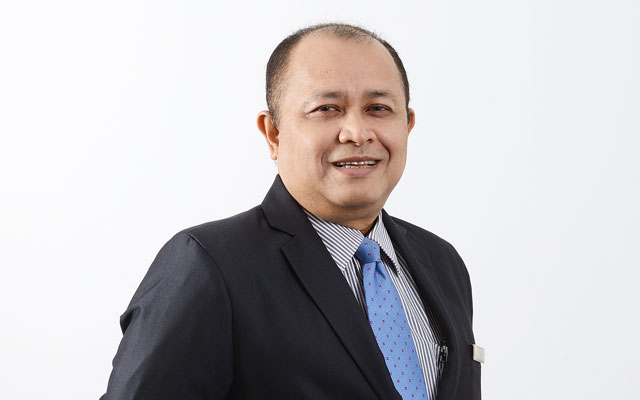The CEO of Malaysia Convention & Exhibition Bureau shares why he’s reaching for business in the neighbourhood and pushing for collaboration.
The Malaysia Convention & Exhibition Bureau (MyCEB) has a new strategy that sees it intensifying destination promotion in Asia, particularly South-east Asia. Why?
South-east Asia has a population of 622 million, a GDP of US$2.39 billion and total trade worth US$2.6 trillion. It is the third largest economy in Asia and the seventh largest in the world.
With such a huge potential coming from within this region and the Asian market, we believe it is important to look nearer to home when it comes to a strategic, targeted effort.

How does your action plan look like?
MyCEB’s role is far from just observing and appreciating the growth of a state. Our objective includes rallying all business events players to come together as one and push Malaysia globally.
Therefore, we are targeting our key markets strategically in order to bring high-yield business events to Malaysia.
For the incentive segment, our target sectors are direct selling companies, and the finance and insurance corporations from China and South Korea. For our convention business, we continue to focus on medical, health, and oil & gas. For our exhibition business, we see furniture, defence as well as oil & gas as key markets.
We will continue to take part in the prominent tradeshows, as well as road shows and sales missions in key markets such as China and South Korea.
Does this mean reduced attention to Europe and the US?
Definitely not. The European and North American markets remain important to us, especially for the convention segment.
We will continue to take part in key tradeshows to maintain our position as the preferred business events destination in Asia, (emphasising our) tremendous value-for-money proposition, world-class services and facilities, as well as many other unique selling propositions to planners and organisers.
Malaysia has three state convention bureaus. How does MyCEB support them?
As a national bureau, MyCEB takes on the leading role in strengthening the business events industry. We strategise on policy implementation and work on destination branding and profiling, promoting the country on a larger scale. We hold regular meetings with our state counterparts to discuss strategic direction to secure more events. We support events at the state level as well.
We also provide industry training and other education platforms for staff of the state bureaus. These programmes give participants an opportunity to network with industry players.
The state bureaus are all different and are focused on selling their destination and promoting their set of unique selling propositions.
For example, Sarawak concentrates on (courting) association conferences on the back of the successful hosting of the ICCA Congress in 2016, while Penang and Sabah offer appealing attractions for corporate incentive tours. They all have their own strengths and pull factors.
Does MyCEB encourage collaboration among stakeholders, particularly in lead sharing?
Yes. We work with our partners on lead generation and focused efforts on ‘Team Malaysia’ for future bids. This is necessary. We have to work closely to come up with a winning bid to differentiate Malaysia from other destinations that are also vying for the same meeting.
Indeed, the establishment of MyCEB outlines the country’s priorities towards the development of Malaysia as a high-income nation, primarily as an economic contributor and catalyst for job creation and employment.
Hence, we continuously invite our industry stakeholders to join us for tradeshows, road shows, sales missions and any other sales and marketing activities that we take the lead on.
How do you see the business events industry evolving, and what steps are being taken to prepare players for the near future?
Public-private partnership is essential to ensure that the business events industry continues to progress dynamically and strategically.
By 2020, the industry is expected to contribute RM3.9 billion (US$934 million) in Gross National Income to Malaysia.
For a destination to be successful (in business events), it must have a strong profile and brand, high performance and strong value offerings. And it needs a broad local commitment, understanding and support from the larger community.
To achieve our 2020 target, these initiatives need a very strong industry-government partnership and support from industry players. A collective effort of all business events industry stakeholders, including various ministries and all industry players, is needed.





















